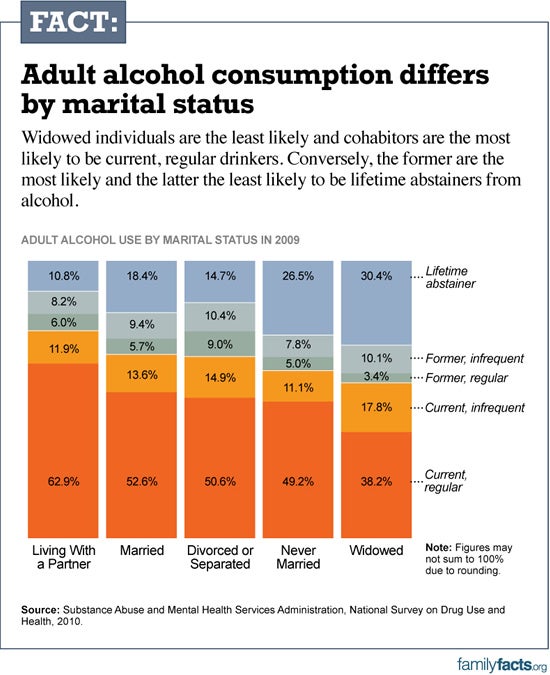The benefits of marriage are numerous, with advantages extending across social and economic situations. Marriage even positively affects married individuals’ health. From decreasing depression to lowering mortality risk and reducing smoking habits—areas where policy remedies are sought but ill-suited to the need—marriage provides a civil-society inoculation far more effective than government intervention.
Tying the knot can also guard against heavy alcohol use, with decreased rates of binge drinking among married individuals. Marriage’s effect on drinking habits may be especially important in light of a recent government report showing increased binge drinking among U.S. adults.
The Centers for Disease Control and Prevention released a new report last week showing that more people participate in binge drinking than researchers previously thought. The report found that one in six U.S. adults binge drinks about 4 times a month—that’s more than 38 million people.
Fortunately, marriage appears to have a positive effect on both men’s and women’s relationships to alcohol, with a decline in alcohol problems among couples who have tied the knot. As FamilyFacts.org reports, marriage appears to reduce alcohol abuse and the frequency of binge drinking. The instance of binge drinking declines by 11 percent among recently married men, and marriage seems to also reduce the number of women who report binge drinking by 20 percent.
College campuses have become notorious sites for alcohol abuse. According to data on FamilyFacts.org, two in five young adults (age 18 to 25) binge drink, and one in seven reports heavy alcohol use. Yet even among this younger cohort, marriage still appears to reduce heavy alcohol consumption. Research compiled for the Department of Health and Human Services demonstrates that even among young adults in their 20s and 30s, a marked decrease in the likelihood of binge drinking appears in the two years surrounding marriage.
In contrast to marriage, the loose bonds of cohabitation—an increasingly favored option among Americans—do not seem to have the same effect on alcohol consumption. Cohabiting couples actually tend to report a higher instance of alcohol problems than their married or single peers and are most likely to be current, regular drinkers when compared to married, divorced, single, and widowed individuals.
The benefits of marriage extend beyond the institution’s well-documented economic and social advantages. As policymakers and national leaders seek to promote healthy choices and react to social problems like binge drinking, they should consider the many ways marriage can encourage a healthier lifestyle.
